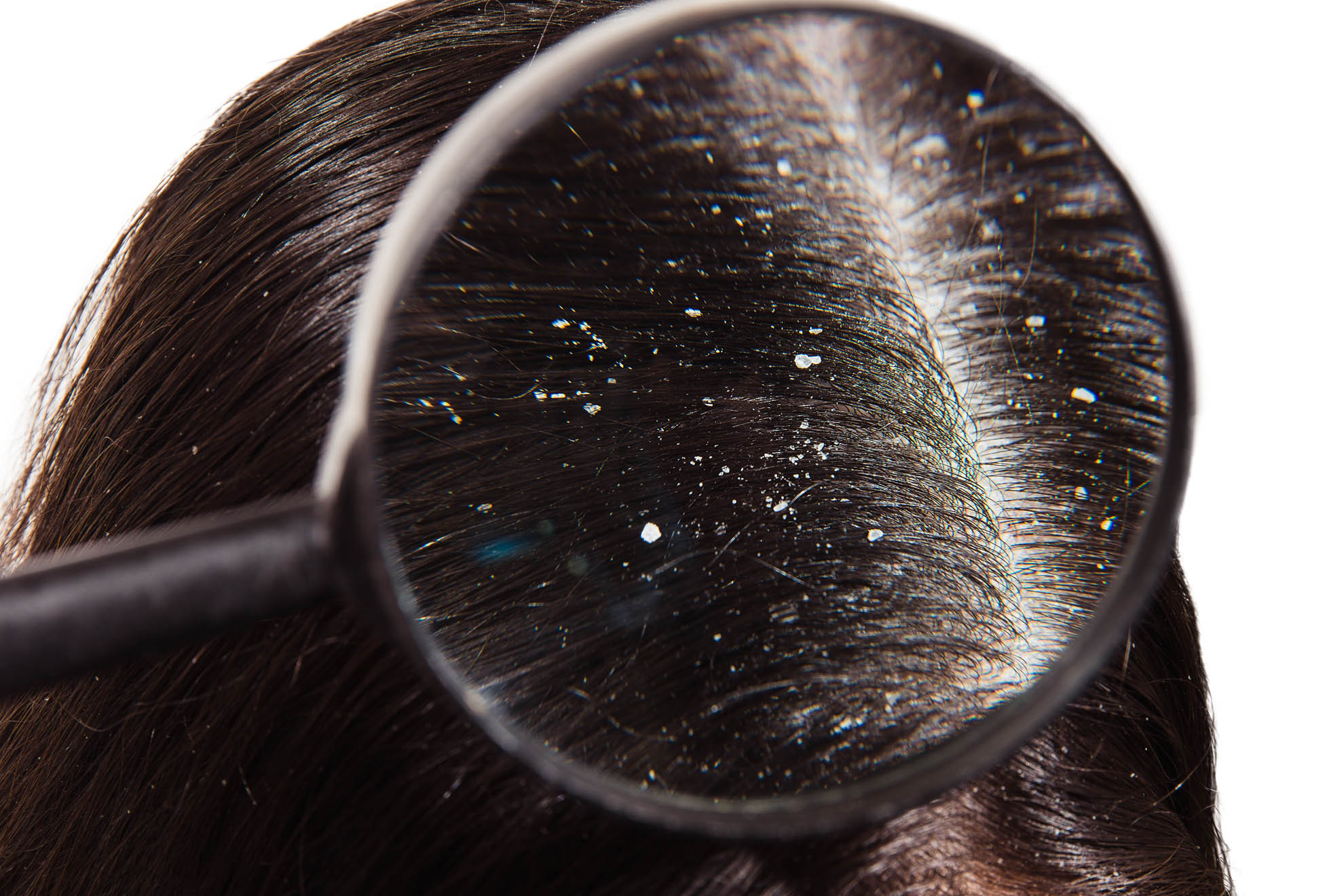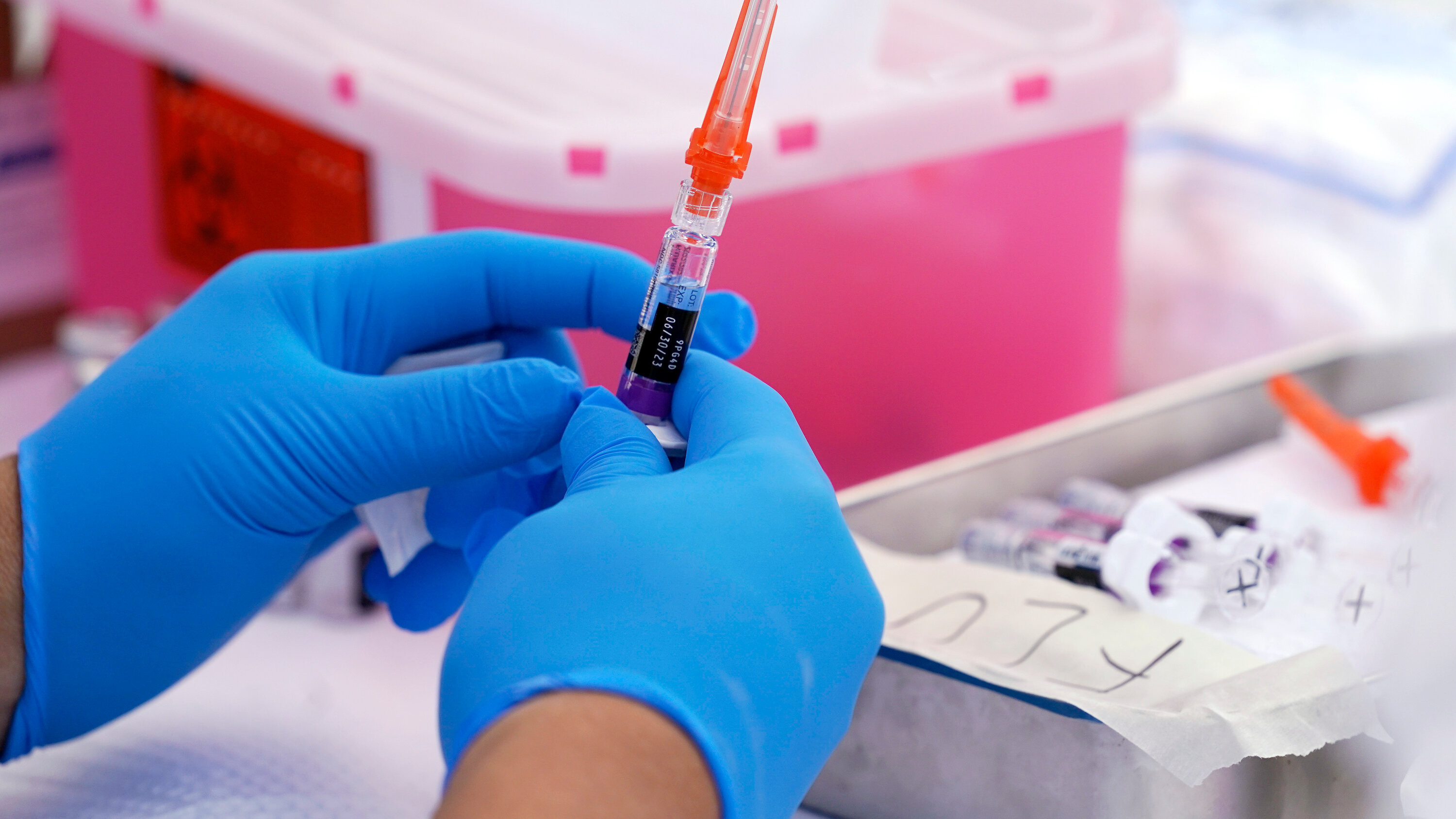After brushing white flakes off of your shoulders, you might be inclined to panic, but rest assured, everything is perfectly fine—especially when The best dandruff shampoos can help clear things up quickly. “I recommend using a dandruff shampoo to most people, as it often cleanses more effectively than regular shampoos, and many individuals have some form of buildup or flaking they may not be aware of,” says trichologist Shab Caspara.
Remember: Dandruff is totally normal and typically caused by buildup that can lead to flaking and inflammation that block hair follicle openings. A dandruff shampoo can therefore be incorporated in any hair-care routine when signs of flaking, excess oiliness, or itchiness appear. Below, we asked experts to share what causes dandruff, how to wash your scalp if you have dandruff, if conditioner is safe to use in tandem, and whether it’s possible to prevent dandruff altogether. Everything you need to know about dandruff, plus the best formulas to shop, below.
What is Dandruff?
While we all know what dandruff is, settling on a simple definition is a bit more difficult for the non-experts among us. Enter Jane Mayhead, a trichologist at The Private Clinic in London. “Dandruff is a common scaly condition of the scalp which is non-inflammatory and believed to affect approximately half of adults,” says Mayhead. “It causes the skin on the scalp to flake and creates flakes of dead skin which often settle on clothing.” While it’s usually harmless, dandruff can cause irritation and scratching and can affect your confidence.
What Causes Dandruff?
It’s important to understand that dandruff can occur for various reasons, and understanding the root cause is key to appropriately treating the condition. Sometimes, trial and error can be just the ticket in terms of getting rid of dandruff (for example, finding a dandruff shampoo that works well for you), but other times, it’s worth consulting a professional to determine why you’re experiencing dandruff and how to deal with it.
“Dandruff can have several causes, including irritated skin, oily skin, dry skin, and a yeastlike fungus called ‘Malassezia’ that feeds on oils of the scalp,” says Gretchen Friese, a trichologist for BosleyMD. Washing your hair too little or too often can encourage dandruff, as can other lifestyle and environmental changes.
How to Get Rid of Dandruff: Expert Tips
Over-the-Counter Dandruff Shampoos
If you’re newly dealing with dandruff, purchasing an over-the-counter dandruff shampoo will likely be your first instinct—and it’s a good one, per the experts. There are several types of these shampoos available, as Dr. Bauman explains: formulated with pyrithione zinc (best for reducing yeast or fungal growth in those with mild dandruff), ketoconazole (which is antifungal and a good choice for stubborn dandruff), coal tar (for severe dandruff), selenium sulfide, or salicylic acid. “Finding the right formula may require trial and error, and rotating between types can improve results over time,” says Dr. Bauman.
Prescription Dandruff Shampoos
In most cases, “the American Academy of Dermatology (AAD) recommends using a dermatologically tested anti-dandruff shampoo instead of DIY treatments and to see a doctor if the problem continues,” says Friese. “And if you have a severe case, make sure to see a doctor before trying any kind of remedy.”
If over-the-counter shampoo doesn’t work for your dandruff or isn’t appropriate, a healthcare professional might prescribe you a special dandruff shampoo with a stronger formulation, which will help to deal with dandruff that is more chronic, as well as associated conditions such as seborrheic dermatitis or scalp psoriasis. “These shampoos may contain higher concentrations of ingredients like ketoconazole or ciclopirox, which are antifungal agents that specifically target yeast overgrowth on the scalp,” says Dr. Bauman. Prescription shampoos can also contain fluocinolone, which helps with inflammation and itching.
Other Treatments for Dandruff
A trichologist, dermatologist, or other scalp expert may sometimes prescribe a dandruff treatment besides a shampoo if you have particularly persistent dandruff. These are typically “topical corticosteroids, antifungal creams, and lotions” and “are used to reduce inflammation, itching, and fungal overgrowth when shampoos alone aren’t sufficient,” says Dr. Bauman. Your doctor will provide you with a personalized treatment plan, and you may need to use the product periodically after the initial treatment period to keep dandruff at bay, according to the expert.
Scalp Scrubs for Dandruff
Taking good care of your scalp health generally can help keep dandruff at bay, and one great way to thoroughly cleanse your scalp is to incorporate a scalp scrub into your routine. “A scalp scrub is a product that contains exfoliating particles and other ingredients meant to remove excess oil, product build-up, and dead skin from the scalp,” says Mayhead. “They can also help to stimulate blood flow to the area.” However, the expert warns that a scrub isn’t a good idea if your scalp is already itchy, so avoid it in that case.
Supplements for Dandruff
Just as supplements can help you take care of your overall health, they can help you maintain your scalp health as well. “Omega-3 fatty acids and probiotics help reduce inflammation and support a healthy scalp by balancing the body’s internal environment,” says Dr. Bauman. “Omega-3s are known for their anti-inflammatory properties, while probiotics improve the skin’s microbiome, promoting a healthier scalp.” Supplements are a great tool in the long term if you prefer a holistic approach, but may not be enough in and of themselves to get rid of dandruff. It’s a good idea to consult a doctor to make sure you’re taking the appropriate supplements for your specific goals, including preventing and treating dandruff.
Lifestyle Changes to Help Get Rid of Dandruff
While products can be critical for eliminating dandruff, there are other actions you can take to get rid of the itchy flakes for good.
Reduce Stress
Chronic stress can be a contributing factor for dandruff because it can trigger excess oil production as well as cause inflammation, explains Dr. Bauman. Therefore, managing stress on an ongoing basis can help prevent dandruff in the long term. To help ease stress, try implementing better sleep hygiene, eating a balanced diet, meditating, exercising, or engaging in creative pursuits.
Eat an Anti-Inflammatory Diet
Inflammation can contribute to dandruff, so managing inflammation holistically—among other things, by eating an anti-inflammatory diet—can help deal with the condition. “This diet typically includes nutrient-dense, whole foods like fresh fruits, leafy greens, fatty fish (rich in omega-3s), nuts, seeds, and olive oil,” says Dr. Bauman. “These foods contain antioxidants and healthy fats that help soothe inflammation and promote skin health.” Meanwhile, you should also aim to limit processed foods, refined sugar, dairy, and red meat where possible.
Exercise Regularly
Regular exercise is an important part of a holistic lifestyle that promotes overall health and scalp health, more specifically, since it can work to address inflammation and reduce stress. One caveat regarding exercise: “Cleanliness is key, too,” says Mayhead. “If you go to the gym and don’t shower afterward, you might find you get dandruff,” so make sure you wash your hair after a sweaty session.
Stay Hydrated
Ensuring you’re drinking enough water is key to many aspects of your overall health and well-being, including helping manage and prevent dandruff. “Dehydration can contribute to dry skin, which may worsen dandruff,” says Dr. Bauman. “Keeping hydrated helps ensure the scalp remains moisturized and healthy, reducing the likelihood of dryness and flaking.” FYI, the National Institutes of Health recommends women drink about 9 cups of water or fluids daily, while men should aim for around 13 cups.
Use Less Styling Product
“Reducing the use of heavy styling products and periodically using a clarifying shampoo helps remove product buildup that can clog the scalp and contribute to dandruff,” says Dr. Bauman. “Clarifying shampoos deep clean the scalp, removing excess oil and debris that regular shampoos might miss.”
Try using fewer styling products or swapping them out for ones with less clogging ingredients, but if that’s not an option for you, Friese recommends using a smaller amount of product and washing your hair more often. If you do use a lot of product, incorporate a clarifying shampoo into your hair care routine once a week or when you notice buildup, says Dr. Bauman.
Protect Your Scalp from the Sun
Sun protection is all-important, and that goes for your scalp, too, especially if you spend a lot of time outdoors in hot weather. “Protecting your scalp from sun exposure is crucial to preventing damage, irritation, and flaking, which can mimic or worsen dandruff,” says Dr. Bauman. “Wearing hats or applying SPF specifically formulated for the scalp helps shield it from harmful UV rays.” This will promote long-term scalp health and help prevent sun damage.
Get a Scalp Massage
As well as feeling heavenly, a scalp massage—whether at home or at a spa—can make a great complement to other dandruff treatments. “Regular scalp massages help improve blood circulation, promote relaxation, and may aid in better absorption of dandruff treatments,” says Dr. Bauman. “This can be combined with oils or treatments for enhanced effectiveness.” You can use your fingers or invest in a scalp massager.
In-Office Treatments for Dandruff
When you consult a trichologist for help with your dandruff, they may prescribe you a dandruff shampoo or other treatment, or they may suggest an in-office treatment that’s a bit more involved. One example is the “Scalp Makeover” offered in Dr. Bauman’s practice, which works to address common scalp issues such as dandruff. “It typically involves gentle exfoliation using specific tools like hydrodermabrasion, special products or techniques to remove dead skin cells, excess oil, and buildup, followed by the application of nourishing treatments that rebalance the scalp's microbiome,” the expert says. A treatment similar to this one offered by a trichologist in your area can not only help you deal with the immediate symptoms of dandruff, but can also help prevent dandruff from happening in the future and promote overall scalp health in the long run.
Hair Botox for Dandruff
Hair botox is sometimes recommended for dandruff, and it has some benefits. “This treatment is mostly for the hair (it is not an injectable treatment), but it can add moisture and help protect the skin on the top of the head from dandruff,” says Friese.
With that in mind, Dr. Bauman advises against using hair botox to deal with dandruff. “It’s important to recognize that its effects on scalp health are limited and, in some cases, may even be damaging,” the expert says. “The chemicals used in hair botox treatments may potentially irritate the scalp, disrupt its natural balance, and weaken the hair, especially if used frequently.” Talk to a professional to ask if hair botox is an option for you, and for help considering alternatives.
When to See a Doctor
If you try one or several of the treatments and lifestyle habits above and your dandruff disappears, then you’re all set! But if the condition persists, or even if you just want to ensure your scalp health is as good as it can be, consulting a trichologist is always a good idea. An expert can help assess the underlying causes of any scalp conditions you’re dealing with and formulate an individualized plan that will be effective in the long run, and help prevent recurrences.

















